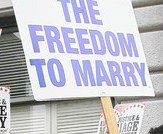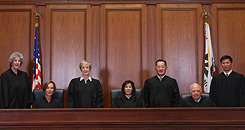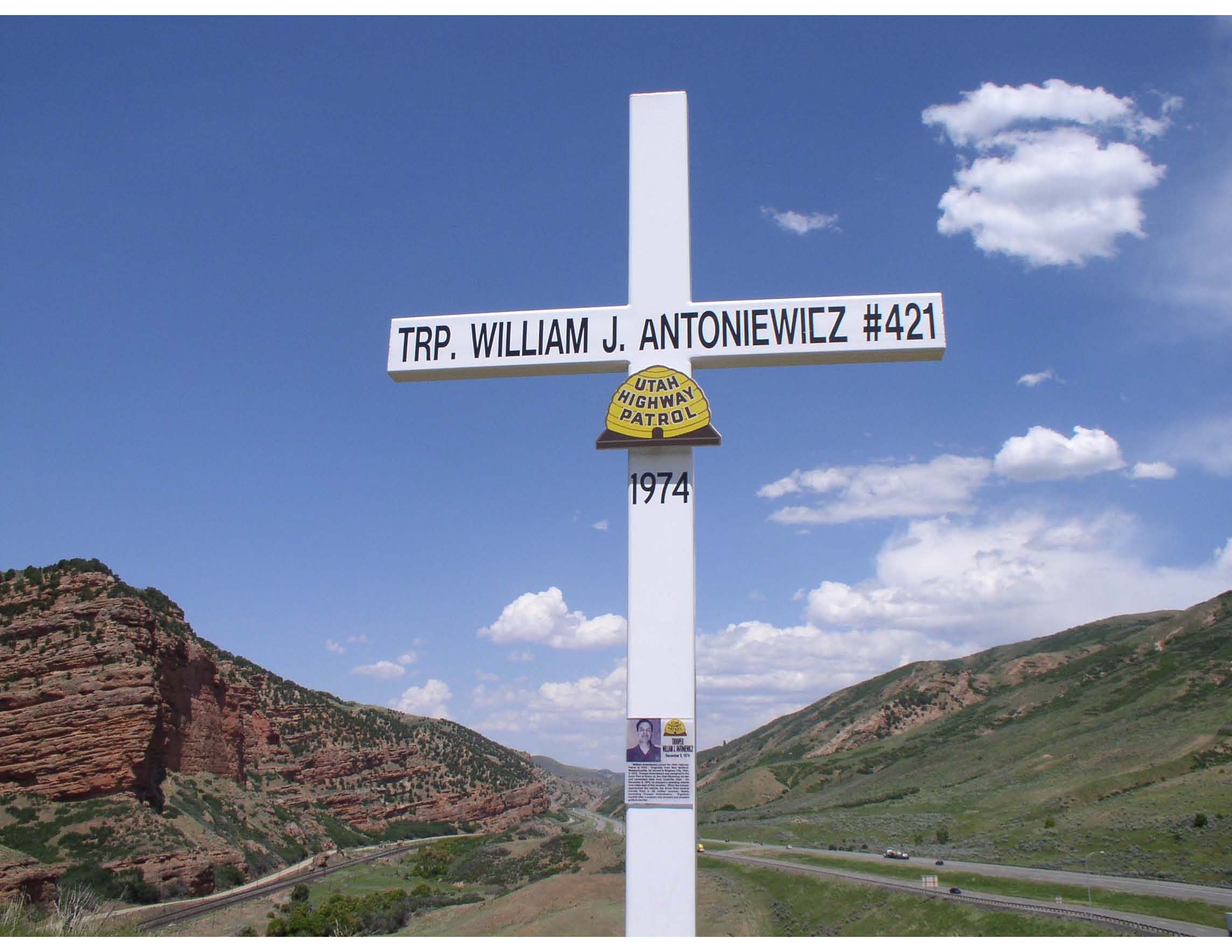Proposition 8 Declared Unconstitutional by Ninth Circuit

7 February 2012 – San Francisco
In an opinion issued on 7 February 2012, the United States Court of Appeals for the Ninth Circuit has affirmed the decision of Federal Court Judge Vaughn R. Walker, who declared Proposition 8, California’s citizen initiative banning gay marriage, unconstitutional. It is expected that the decision, which has been more than a year in coming, will be appealed to the U.S. Supreme Court.
News items follow:
- Culture Watch: Ninth Circuit Court rules against marriage. (The Heritage Foundation)
- Proposition 8 and the new religious reality. (Ross Murray, On Faith, The Washington Post)
- Prop. 8: U.S. Supreme Court might not take gay-marriage case.
…
CA Supreme Court Says Prop 8 Backers Have Standing to Defend Measure

17 November 2011 – Sacramento, California
The Supreme Court of California has announced its ruling in Perry v. Brown, the case concerning the legal standing issues involved in the controversial “Proposition 8” case, Perry v. Schwarzennegger. The Ninth Circuit had in January 2011 asked the Court to answer the following question:
…
Reports on U.S. Religious Freedom Court Cases, 2011-2012

7 May 2012. Allocation of playing fields did not violate Establishment Clause. (Rogers v. Mulholland) [Howard Friedman, Religion Clause]
6 May 2012. Recent prisoner Free Exercise cases. [Howard Friedman, Religion Clause]
4 May 2012. Art of Living Foundation v. Does, 2012 U.S. Dist. LEXIS 61582 (ND CA, May 1, 2012) [Case No.: 5:10-cv-05022-LHK], is a copyright infringement and trade secret misappropriation case brought by foundation that teaches the wellness and spiritual lessons of Ravi Shankar, including courses on breathing, meditation, and yoga. One of the defendants posted copies of the Foundation’s…
Religion and the Courts: The Pillars of Church-State Law
March 2011 – The Pew Forum on Religion in Public Life
Churches in Court: The Legal Status of Religious Organizations in Civil Lawsuits
Professors Scharffs and Gedicks Quoted on School Religious Clubs Issue
13 April 2011 – Salt Lake City
In the article, “Religious clubs face hurdles on campuses,” appearing in Salt Lake City’s Deseret News on 13 April 2011, journalist Michael De Groote has revisted the issues raised in Christian Legal Society v. Martinez, handed down by the United States Supreme Court in June 2010. [Read opinion here.] The Court in this case ruled for the University of California’s Hastings College of the Law in its denial of recognition to a Christian student group that required voting members to sign a statement of faith, prohibiting “unrepentant participation in or advocacy of a sexually immoral lifestyle” (and, incidentally, non-Trinitarian beliefs, such as those held by members of the Church of Jesus Christ of Latter-day Saints.) In a dissenting opinion, Justice…
Supreme Court Ruling in Arizona School Tax Cases – Reports and Commentary
4 April 2011 – Washington, D.C.
The United States Supreme Court has issued its opinion in the consolidated cases Arizona Christian School Tuition Organization v. Winn, 09-987, and Garriott v. Winn, 09-991, reversing the 9th Circuit Court of Appeals to find in favor of Arizona, leaving in place a scholarship program for private schools that detractors see as a violation of the separation of church and state. The narrow (5-4) opinion held that the taxpayers who challenged the program did not have…
U.S. Supreme Court Denies Hearing of 10th Circuit Ruling on Roadside Crosses

31 October 2011. Supreme Court avoids dispute over highway crosses. (Jennifer Dobner, Associated Press)
31 October 2011. U.S. Supreme Court refuses to hear UHP crosses case. (Aaron Falk, The Salt Lake Tribune)
31 October 2011. FRC blasts Supreme Court for allowing decision to stand that removes roadside crosses in six states. (Christian Newswire)
31 October 2011. Supremely scary: Justice Thomas’ approach to church-state relations is truly frightening. (Rob Boston, Americans United for Separation of Church and State, Wall of Separation)
Supreme Court Opinion in Texas Prisoner Religious Freedom (RLUIPA) Case

20 April 2011 – Washington, D.C.
The United States Supreme Court has ruled that states, in accepting federal funding, do not consent to waive their sovereign immunity to private suits for money damages under federal law. In a majority opinion written by Justice Clarence Thomas in the case Sossamon v. Texas et al., the Court ruled that the principle of sovereign immunity protects a state from a damages lawsuit by a prisoner who contends that…
Utah Files Petitions to U.S. Supreme Court in Roadside Crosses Case

20 April 2011 – Washington, D.C.
The Alliance Defense Fund (ADF) has filed a petition for a writ of certiorari to the United States Supreme Court in the case now titled Utah Highway Patrol Association v. American Atheists et al. This Establishment Clause case defends the presence of roadside crosses along Utah highways memorializing fallen State Troopers against a challenge by American Atheists and others. ADF will represent the Utah Highway Patrol, while former Texas Solicitor General …
US Supreme Court Hears Arguments on Arizona Tax Credit Case
November 2010 – Washington, D.C.
Joseph Hepworth
The United States Supreme Court heard oral arguments on 3 November 2010, in Arizona Christian School Tuition Organization v. Winn on the constitutionality of an Arizona tax credit for donations to organizations that provide scholarships at private schools. The law allows the taxpayer to direct scholarship money to students attending religious schools. The case will determine if the tax credit program violates the US Constitution’s Establishment Clause, which, as applied to the states by the Fourteenth Amendment, prohibits states from endorsing or advancing religion. Opponents of the tax credit claim it is unconstitutional because taxpayers choose to direct more contributions to religious organization than nonreligious ones. A decision is expected next spring.
Supreme Court Issues Decision in Snyder v. Phelps Controversial Free Speech Case

2 March 2011 – Washington, DC
The Supreme Court of the United States on 2 March 2011 issued its ruling in Snyder v. Phelps. In an 8-1 opinion the Court held that the First Amendment protects fundamentalist church members who mount protests outside military funerals to call attention to their notion that military deaths are God’s revenge for the country’s tolerance of homosexuality. The defendants in the case were members of the Westboro Baptist Church of Topeka, Kansas, consisting…
U.S. Supreme Court to Consider Arizona School-Choice Program that Gives Tax Credit for Scholarship Money Given to Religious Schools
June 2010 – Washington, D.C.
Joseph Hepworth
The United States Supreme Court announced on 24 May 2010 that it would hear the case Garriott v. Winn. The Court will decide whether a law that gives Arizona residents a state tax credit for their donations to private scholarship agencies that support students in religious schools violates the establishment clause of the First Amendment of the U.S. Constitution. The establishment clause bars the government from endorsing any…
Federal Judge in California Rules Proposition 8 Unconstitutional
Bulletin 8 September 2010: The California State Supreme Court has dismissed the suit of Pacific Justice Institute (see below) without comment. “It will now be up to a federal appeals court, and possibly the U.S. Supreme Court, to decide whether Prop. 8’s sponsors have legal standing – the right to represent the state’s interests in defending one of its laws” (San Francisco Chronicle Report). In the meantime, the stay on the performance of gay marriages in California remains in place, pending…
U.S. Supreme Court Decides in Favor of Hastings Law School in Christian Legal Society v. Martinez
Bulletin 17 November 2010: Ninth Circuit rebuffs another challenge by the Christian Legal Society of Hastings Law School.
Bulletin 28 June 2010: The U. S. Supreme Court has handed down its ruling in Christian Legal Society v. Martinez, finding 5-4 in favor of Hastings Law School. The opinion of the Court was delivered by Justice Ruth Bader Ginsburg, joined by “the court’s liberals and moderate Anthony Kennedy.” One conservative American commentator called the ruling a…
Ninth Circuit Seeks Guidance on Same-Sex Marriage Appeal from CA Supreme Court
5 January 2011 – U.S. Ninth Circuit
Joseph Hepworth
On 4 January 2011, the US Court of Appeals for the Ninth Circuit asked the Supreme Court of California whether supporters of Proposition 8, California’s same-sex marriage ban, have standing to defend the measure when state officials who are named defendants [see Perry et at. v. Schwarzenegger et al.] have refused to do so. The Ninth Circuit asked the California…
First Circuit Upholds New Hampshire Law that Requires Public Schools to Set Aside Time for Voluntary Recitation of Pledge of Allegiance
12 November 2010 – U.S. First Circuit
Joseph Hepworth
The United States Court of Appeals for the First…
Oklahoma Voters Ban Use of Islamic and International Law in State Court Decisions; CAIR Files Lawsuit Challenging Constitutionality
November 2010 – Oklahoma, U.S.
Joseph Hepworth
Bulletin 9 November 2010: “A federal judge blocked Oklahoma officials Monday from implementing a voter-approved referendum that singles out Islamic religious law, or Sharia, as a threat to the state.” (Wall Street Journal online)
On 2 November 2010, Oklahoma voters approved State Question 755, an amendment to the Oklahoma State Constitution banning the use of Islamic or international law in state court decisions. On 4 November the Oklahoma chapter of the Council on American-Islamic Relations (CAIR) filed a lawsuit challenging the constitutionality of amendment. In the lawsuit, filed in the US District Court for the Western District of Oklahoma, CAIR seeks a preliminary injunction restraining the Oklahoma State Board of Elections from certifying the election results. CAIR argues that the amendment violates the Non-Establishment Clause of the First Amendment because the amendment has a sectarian purpose (preserving Oklahoma’s Judeo-Christian legal foundation), it inhibits religion (by condemning the Islamic faith), and it fosters excessive entaglement with religion (by requiring the Courts to take positions on doctrinal matters in determining what is included in Sharia law). CAIR also argues that the Amendment violates the Free Exercise Clause of the First Amendment because the amendment’s primary purpose is to supress religious practice and is not narrowly tailored to advance a compelling goverrment interest. CAIR’s memorandum in support of its motion for a preliminary injunction is available here.
New Hampshire Supreme Court Upholds Restriction on Probationer Attending Church Services
September 2010 – New Hampshire Supreme Court
Joseph Hepworth
The New Hampshire Supreme Court has ruled…
US Supreme Court: Law School May Require Student Groups to Accept Members Who Do Not Share Group’s Religious Beliefs or Conform to Group’s Code of Conduct
June 2010 – Washington, D.C.
Joseph Hepworth
The United States Supreme Court, in Christian Legal Society v. Martinez…
U.S. Ninth Circuit Issues Ruling in Spencer v. World Vision
August 2010 – U.S. Ninth Circuit
Joseph Hepworth
Ninth Circuit rules that quasi-religious organization has the right to hire only people who agree with its religious beliefs.
In Spencer v. World Vision [announced August 23, 2010], a panel of the United States Court of Appeals for the Ninth Circuit ruled that World Vision, Inc., an organization founded on Christian principles but unaffiliated with any specific Christian church, could terminate employees who no longer adhered to Christian doctrines embraced by World Vision. World Vision describes itself as a “Christian humanitarian organization dedicated to working with children, families and their communities … by tackling the causes of poverty and injustice.” World Vision requires its employees to adhere to a statement of doctrinal belief. Upon learning that two employees disavowed the doctrine of the trinity, World Vision terminated them. In an appeal granting World Vision summary judgment, the court considered only one question: Is World Vision a “religious corporation, association, … or society” entitled to an exception from Title VII of the Civil Rights Act’s prohibition of religious discrimination in employment? The court announced three separate tests in three opinions. Judge O’Scannlain wrote that “a nonprofit entity” qualifies as a religious organization if it “(1) is organized for a self-identified religious purpose … (2) is engaged in activity consistent with, and in furtherance of, those religious purposes, and (3) holds iteself out to the public as religious.” In a concurring opinion, Judge Kleinfeld argued that being a non-profit entity was insufficient and added a forth element to the test: “and does not engage primarily or substantially in the exchange of goods or services for money beyond nominal amounts.” Judge Berzon, dissenting, would only apply the exemption to an organized church or an entity affiliated with an organized church.
Fifth Circuit Invalidates Dress Code Requiring Native American Boy to Hide Long Hair
July 2010 – U.S. Fifth Circuit
by Joseph Hepworth
A Native American elementary school student challeged…
Mojave Cross Display Constitutional Says U.S. Supreme Court in Salazar v. Buono

Bulletin 11 May 2010 – Mojave National Preserve, California
The seven-foot-tall metal “Mojave Cross” has disappeared, apparently removed by vandals some time during the night of 9-10 May 2010.
April 2010 – Washington, D.C.
In a judgment of potential significance for future U.S. church-state disputes, the Supreme Court of the United States has ruled that a California federal court went too far in ordering the removal of a war memorial cross…
U.S. Supreme Court Issues Decision in Pleasant Grove City v. Summum
February 2009 – Washington, D.C.
On February 25, 2009, the Supreme Court issued a decision in Pleasant Grove City v. Summum. Petitioner Pleasant Grove City, Utah, has a public park within the city limits which has eleven privately donated monuments that are permanent fixtures, including a Ten Commandments monument. The respondent requested permission to erect a monument containing the Seven Aphorisms of Summum. The City denied permission, stating monuments must relate directly to the City’s history, or be donated by groups with longstanding community ties. The respondent was unable to meet…